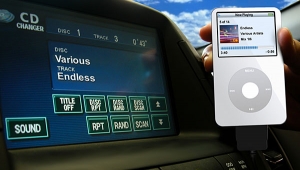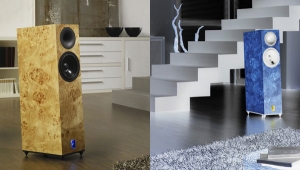| Columns Retired Columns & Blogs |
High-resolution formats will change the state of high-end audio, but not really for the worse. High-quality audio will be less of a niche market. The advent of mass-market 24-bit/96kHz digital raises the bar of audio quality in cheap mass-market components. Overall, in the short term, mass-market audio is coming closer in quality to the High End, but once designers are more familiar with the newer technology, high-end designers will reap the potential of high-resolution digital in their no-compromise designs. In the early days of CD, even the high-end CD players were not all that wonderful, but now 16-bit audio has likely reached its potential, and it is very good. The same will apply to 24-bit audio. The great thing is that even the early-generation mass-market DVD players sound pretty good. Just think---in 10 years, the current 24-bit designs will seem crude and unlistenable. I haven't even mentioned surround sound yet. I believe that surround sound for music will increase the public's interest in listening to music as more than just background noise. Look what it did for home theater. Before surround sound in home movies, there wasn't such an explosion of consumers looking for quality in their audio systems. As far as I saw, most people wouldn't even connect their VCRs to decent stereos. Surround sound came out, and BAM! everyone just has to have a home theater. Now the average person owning a home theater has by far a better system than what they would have purchased if there was no surround sound. Most people don't know the joys of well-reproduced music. They go out and buy decent-sounding equipment for movies. They also play their music on these systems, then they begin to understand the differences that quality makes. Once surround sound for music becomes more widespread, the public will eventually drift away from CD toward DVD-Audio. With the current confusion brought on by the new technologies and the current trends focusing on mainly home theater, it could seem that the High End is disappearing, but it is not. It is simply in a temporary transitional state. Once the High End gets a hold on the new technology, they will run with it, and we will experience reproduced music as we could only dream of before. At the same time, the state of mass-market audio will be greatly improved, and the average consumer will experience levels of sound quality they didn't even know existed.


























